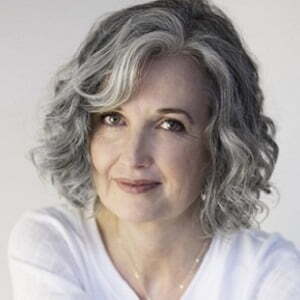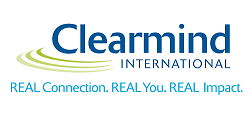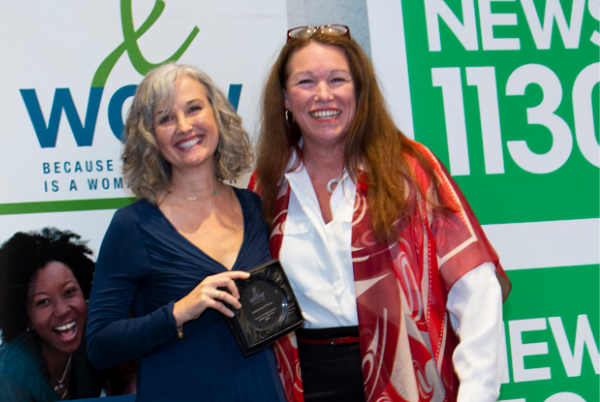I was honoured in February to be nominated for the Women of Worth Foundation award for Leader of the Year 2019. Almost as soon as the email hit my inbox, I ran into myself! I felt guilty inviting people to the event just for me, and worse asking them to attend when I might not win. I ran straight into this: I am selfish, unworthy, and not good enough. I am wasting people’s time. To actually receive the wonderful acknowledgement extended to me, I had to face something not so wonderful.
It turned out, as it always does, that I am good enough. This was affirmed by my friends and family, who happily and willingly came to celebrate the nomination itself, regardless of whether I won. I did win! It was a surreal moment, recognizing my biography as the presenter read it out, even before my name was announced. That greater public affirmation was a bonus. Another bonus is getting to be ‘Leader of the Year’ for the rest of 2019!
It has been an interesting exercise ‘owning’ this title, ‘Leader of the Year’. I aspire to be at my best, in my work and in my personal life. This requires constantly pushing myself through my fears and anxieties, through my own discomfort, to the real me on the other side of that scary edge. Real impact can only come from being real, yourself.
If I were asked to sum up my scope of leadership in a few sentences, I would say I help people become emotionally aware and emotionally responsible. Emotional responsibility translates into better relationships, and as a person’s positive impact filters through their immediate sphere of influence, ultimately a better world. Real connection is what matters most to me.
A reporter once asked Einstein, ‘what is the most important question facing humanity today?’ Einstein’s response was ‘is the universe a friendly place, or not?’. I believe in a friendly, loving universe, even as I am acutely aware that hard, painful things happen. The friendly universe is about seeing possibility in the middle of a difficult situation. The friendly universe is about hope. The friendly universe inspires us to become, actively, part of the friendliness.
You can’t change what you don’t acknowledge
In my therapeutic work this often means walking through painful truths with my clients, as well as facing uncomfortable truths within. You can’t aspire to be at your best without having to face and address the worst. You can’t change what you don’t acknowledge.
Every now and again I hear variation of this from somebody – “I don’t’ watch the news… it’s too negative.” There is fine line between denial and hope. Protecting yourself from painful truth, consciously or unconsciously, is going to result in someone somewhere being impacted. Our unwillingness to face uncomfortable truth hurts us personally, and collectively.
Pain is cascading through the greater relationship system we are all part of. When we are emotionally irresponsible, meaning unwilling to face what makes us uncomfortable, we contribute to that pain. We feel uncomfortable, and we try to alleviate that discomfort through irresponsible action or non-action. We hide, we pretend, and we defend. We avoid facing the worst, and side-step around our own fears.
Problems and dilemmas get amplified by these pain avoidant strategies. This is how problems grow into huge, critical, polarizing situations, in our immediate relationships and in the world at large. If you need to protect yourself from discomfort, you will deny truth when it is uncomfortable. The more you deny, the more it gets in your face. It all becomes worse, inside and out.
My friendly universe is rooted in the belief that love can heal any mess that humans make, if we bring the mess to it. This requires facing the worst, exploring it, and ultimately doing something about it. And therein lies another conundrum attached to emotional responsibility: do what, exactly? And how much?
Take responsibility and show up fully
The task is to take full responsibility for what is under your control and let go of what isn’t. If every relationship adds up to 100%, a healthy relationship stance is when you practice 100% of your 50%—no more, and no less. When you practice more you are over-functioning; when you practice less, you are under-functioning. In other words, show up, fully.
For underfunctioners, this means stepping up, instead of using the avoidant/distant tactic can be so automatic. Overfunctioners often misinterpret this task, because when an overfunctioner is doing for someone what they could or should be doing for themselves, they imagine they are doing their share plus someone else’s. However, they are more often ignoring their own business – the underlying anxiety driving their behaviour – and instead messing about in someone else’s business, as a way of alleviating that anxiety.
You can only change what you are responsible for. Doing 100% of your 50% means you are functioning at capacity: bringing your best self to all you encounter. This requires identifying and putting your energy fully into what matters, for you, rather than wasting your energy on an endless list of ‘to do’s’. Busy-ness is the western world’s celebrated way of avoiding the vulnerability that comes really putting yourself out there. Look at me! I am productive and busy! I have value!
Identifying what matters most and choosing to act on that will feel risky. When something or someone is important, we feel vulnerable. We could fail or be rejected – we have to face the worst. From personal experience, I can tell you that you will fail and lose. What will keep you getting out of bed in the morning anyway is that what matters to you is more important than failure.
Being at your best isn’t a steady state, because we are always and forever evolving. Being a better person today than I was yesterday requires moving into uncomfortable territory, exploring, and becoming. Focusing my energy on what matters most, making that more important than inevitable setback and failures, requires facing the worst. That isn’t comfortable, but it is real, and it is ALIVE.
Want to know more? Check out ‘REAL: The Power of Authentic Connection’ by Catherine and Duane O’Kane.

Catherine O’Kane is a Registered Clinical Counsellor, teacher, workshop facilitator and a gifted and entertaining public speaker with Clearmind International. She has a Master’s degree in Clinical Psychology, and has been a practicing therapist since 1992, helping people evolve out of personal pain into purpose. She firmly believes that what we put out in all our relationships has the power to ripple out and effect positive change in our families, communities and beyond.

